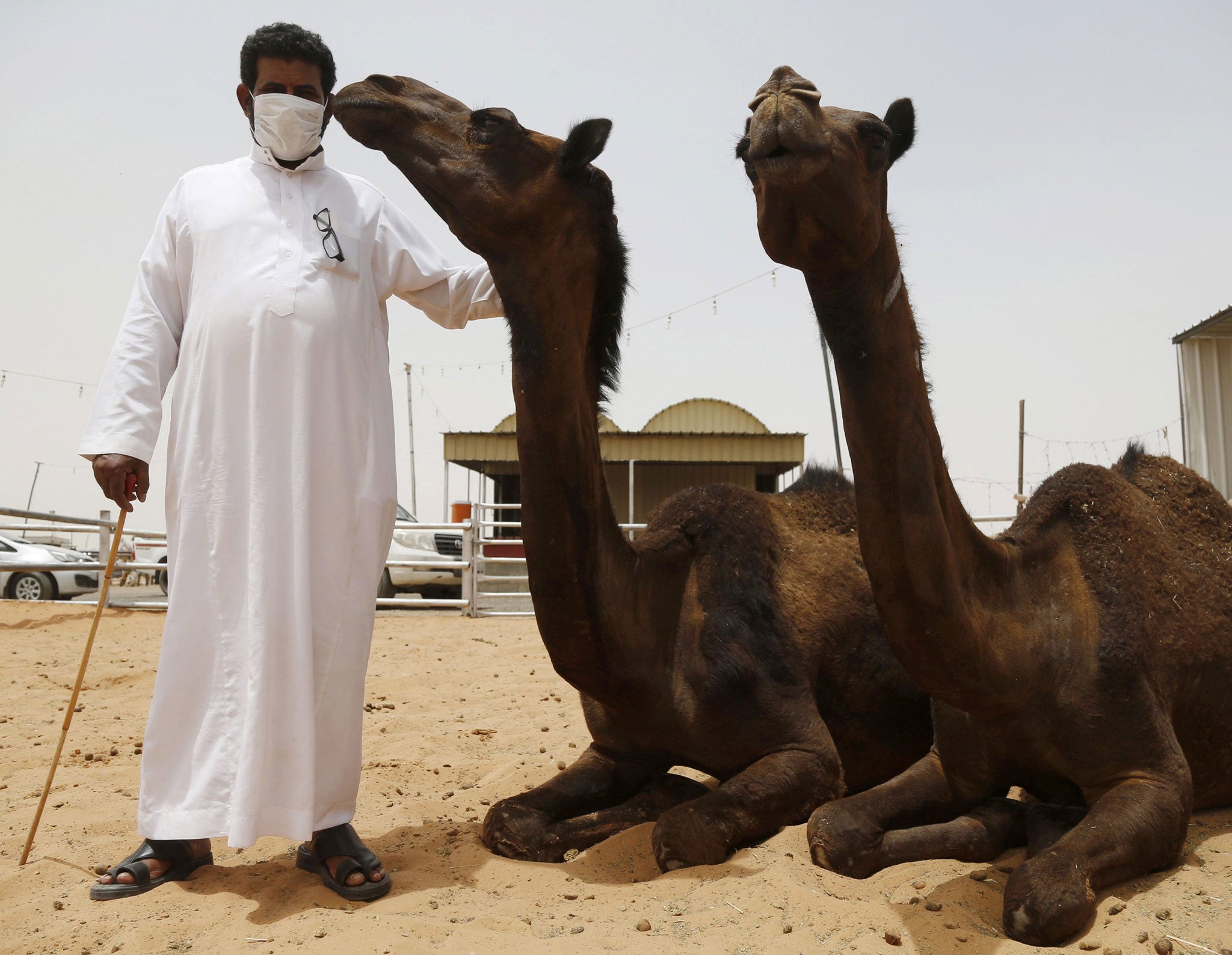Deadly Mers virus ‘could be spread by cats and dogs’ and is not just found in Saudi Arabia, scientists warn
Experts still know little about how the mysterious infection is transmitted

Household pets like cats and dogs could be partially to blame for the spread of the mysterious Mers virus, an expert has said, as scientists around the world struggle to understand more about how the deadly infection is transmitted.
Columbia University’s Dr Thomas Briese is the lead author of a recent study that conclusively proved the version of the disease currently affecting humans is the same as the one carried by camels.
But the virus, which was first discovered in Saudi Arabia in 2012 and has since killed around 200 people across almost 600 cases, does not appear to have a disproportionate impact on people who deal with camels on a daily basis – and some people have been infected after no reported contact with the animals whatsoever.
Middle East Respiratory Syndrome has now been identified by the World Health Organisation as a “threat to the entire world”, but experts admit there are a great many “unknowns” in our knowledge of how the disease spreads.
Speaking to BBC News at a meeting of the world organisation for animal health (OIE) in Paris, Dr Briese said that what we do know about the disease suggests camels are not the sole route of infection.
He said that other species like goats and sheep had been tested but showed no signs of exposure, and that research must as a result be extended to domestic animals whose living conditions with humans could lend themselves to the transmittance of the disease.
“The others that we are looking into or are trying to look into are cats, dogs where there is more intimate contact, and any other wild species we can get serum from that we are not currently getting,” he said.
Dr Briese also pointed to another report showing that, far from being limited to Saudi Arabia itself, reservoirs of Mers have been found in Nigeria, Ehtiopia and Tunisia – yet mysteriously there have been no confirmed deaths from the disease in these regions.
He said the real fear is that the virus will mutate to become more contagious between humans, something which could “happen at any time”.
“The larger the numbers the higher the probability, that's the point of trying to stem these human infections,” he said.
Subscribe to Independent Premium to bookmark this article
Want to bookmark your favourite articles and stories to read or reference later? Start your Independent Premium subscription today.

Join our commenting forum
Join thought-provoking conversations, follow other Independent readers and see their replies